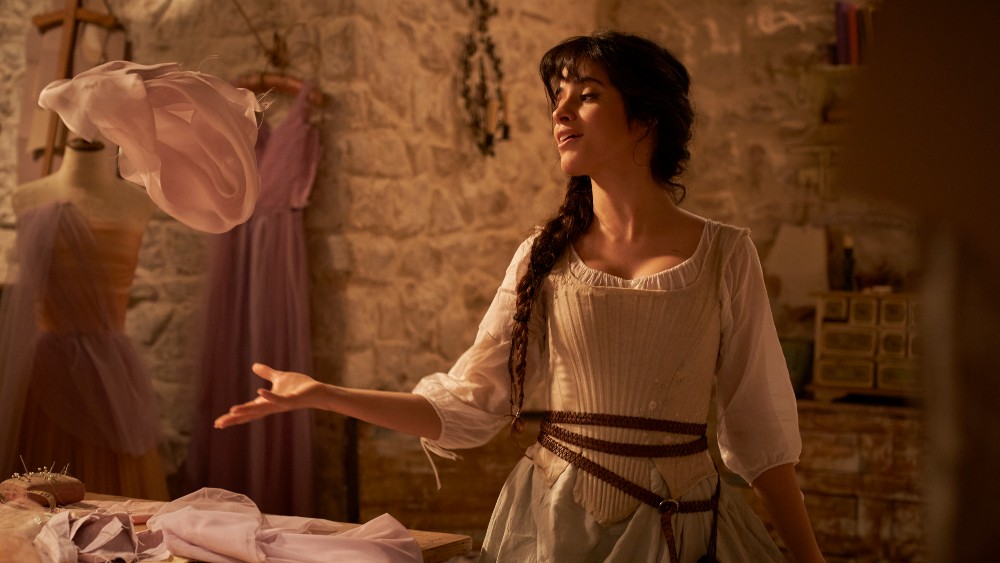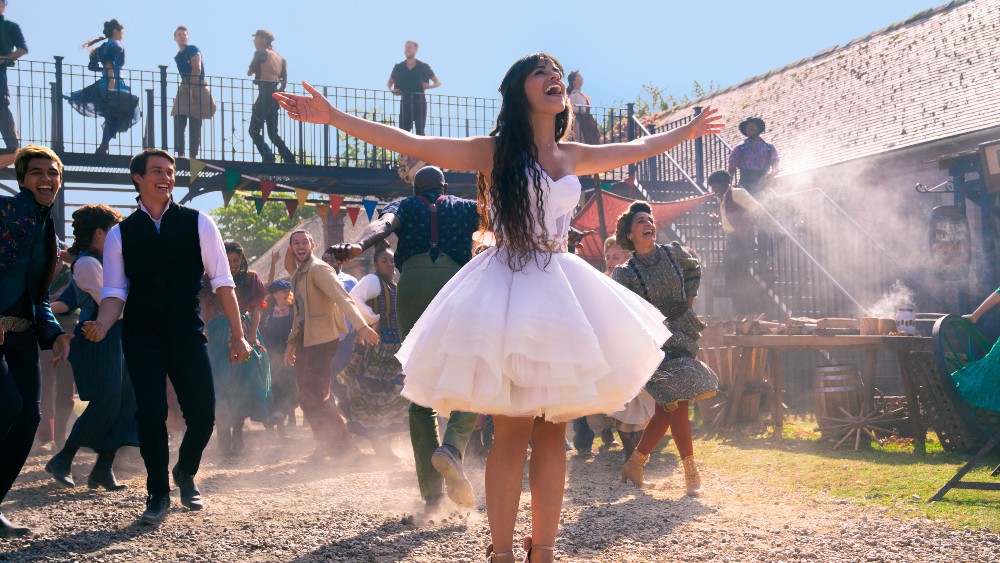
As much as we love to share interviews with veteran award-winning composers as part of this series, Below the Line also wants to use it to shine the spotlight on some of Hollywood’s newer blood of composers.
Jessica Rose Weiss is indeed relatively new to the world of film scoring, having started a mere five years ago, but she’s been a part of the music department as a music editor for far longer, allowing her to work with the likes of Oscar-winner Hans Zimmer and Mychael Danna, as she’s made her way into scoring her own projects.
Recently, Weiss worked with Danna to compose the incidental score for Kay (Pitch Perfect) Cannon’s musical, Cinderella, which is currently streaming on Amazon Prime Video. Although one might think that a musical would involve a much larger contribution from its composers, Weiss and Danna basically filled in the gaps where necessary, in between the movie’s musical dance numbers.
This version of the classic fairy tale stars pop star Camilla Cabello as the title character with a cast filled out by the likes of Idina Menzel, Pierce Brosnan, Nicholas Galitzine, Minnie Driver, Billy Porter, and James Corden (who originated the idea for this particular incarnation of Cinderella). You can hear Weiss’ score with Danna on various streaming platforms, including Spotify and Tidal.
Below the Line spoke with Ms. Weiss over Zoom for the following interview:
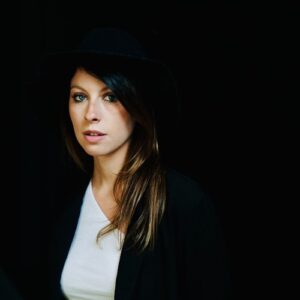
Below the Line: Before we start talking about Cinderella, I’d love to know more about your background and how you got into composing. I know that you were a recording engineer for a while.
Jessica Rose Weiss: I played piano and guitar growing up and took lessons, I was forced to take piano lessons, which of course, I hated as a kid. I’ve always been playing instruments and studying music in that sense, but I didn’t go to a conservatory. I have definitely learned on the job through wonderful mentorships. I grew up in New York City, and I was always pursuing the arts, I was studying theater and doing a lot of singing and acting and dance and always enveloped in that world and also songwriting, and so, towards the end of college, I knew that music was going to be my main focus. So, right after school, I got an assistant position with a wonderful composer in New York named Chris Hajian. That’s how it started to unfold for me, in terms of film and television composition.
BTL: I’ve spoken to a few composers that have taken different paths. I’m not sure I’ve spoken to a composer that started out in engineering or music editing, was it just a very natural and organic transition to make music for what you were editing?
Weiss: I think it’s always organic, because of my background as a songwriter. As a writer and as a musician, I was always pursuing writing music, even if my quote-unquote “day job” was as a music editor. The beauty of being a music editor, especially at Remote Control, which is where I did that with Hans [Zimmer], I really learned so much about the business side of this industry. I also learned so much about the writing side and the creative side, so it was truly the best education a person could ever hope for working for him and working at that studio.
BTL: There are so many composers out there that have gone the Hans Zimmer route. When did you start working with Mychael Danna, because you were working with or for him before actually composing with him, right?
Weiss: I started working with Mychael in 2016, I believe. I was an assistant music editor to his main music editor on a film called Transcendence, which was directed by Wally Pfister, and a really cool movie. Through that, I got to know him, and I made it pretty clear early on that my goal was to be composing, and to continue to pursue that, and he heard me, and he really gave me a shot, and he took me under his wing. I’ve learned a hell of a lot from him, so I did a lot of additional writing for him as well for projects like A Dog’s Way Home and The Addams Family, and then we co-scored a virtual reality series that’s going to come out called Into the Now, which is very, very cool. That was our first co-collaboration, and then Cinderella came about, and he asked me if I wanted to be a part of it.
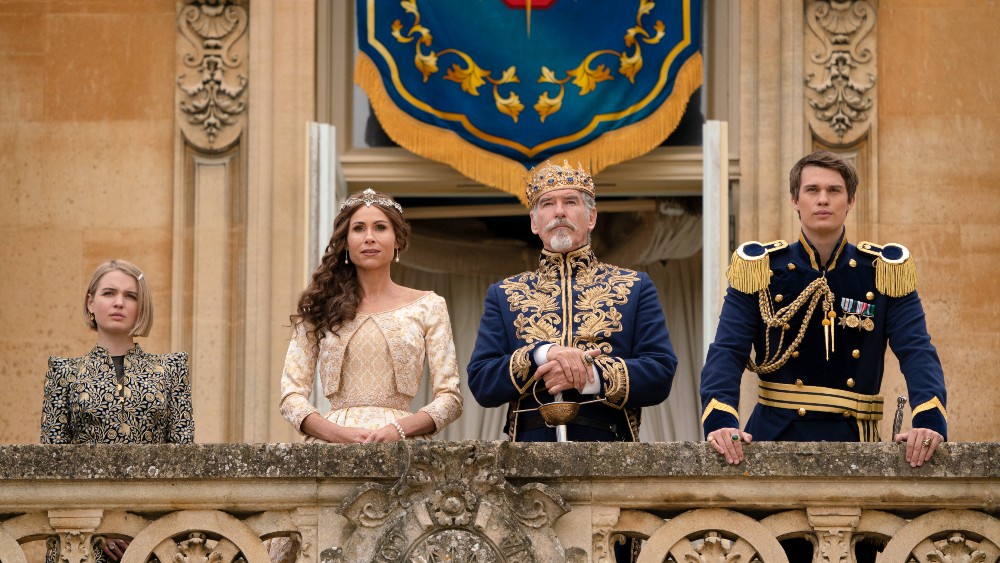
BTL: When you started scoring Cinderella with Mychael, how were your respective duties divvied up? Did you each work on different sections or doing different cues?
Weiss: It was like being in a band, truly — it was very cool, We sat down and watched the film together, and then we talked about concepts and the palette and the tone and how we wanted to approach writing. And then, we kind of got to work. I would start on a scene and he’d be looking at a scene, and I’d write a melody or an idea, and I’d send it over to him, and he’d review it, and then have some thoughts and maybe tinker a bit and add something and send it back over. It was a constant back and forth of just experimenting, and exploring, and it was a really brilliant process, because it really helps to have another set of ears and eyes, so it was really rewarding.
BTL: Since Cinderella is a musical, people assume the composers are doing all the music, but there are songs in there, and there needs to be musical and choreography arrangements for them. I actually listened to the soundtrack for the movie, and there’s only about 25 minutes of actual score. How much did you know in advance what’s going to be happening musically before you start composing your score for the movie?
Weiss: By the time we got the cut of the film, all the songs were assembled. We at least knew what the song was, and there was a recorded version of it. We knew what we had to work with, we knew a big part of our job was to figure out our palette, figure out tonally what we wanted to do, figure out arrangement-wise and also, thematically, what we wanted to do. But a big part of our job as well was to make sure that the transitions between the score and songs happened seamlessly, so we were very conscious of how we approached that part of it.
BTL: The cues are very short, at least on the soundtrack. Is there generally music from beginning to end and you’re filling in the spaces, or how does that work?
Weiss: We were very sensitive towards when music should be there, and when it didn’t need to exist. I think silence in films is a very important part of good storytelling. As composers, it’s a funny thing to say, but truly, I think when there are silent moments in a film, it really adds to the weight when we finally do hear something, when score does come in, or a song does come in. We spent time in the spotting sessions, figuring out where music should be placed, how long it should be, and the most important thing was always, “Okay, well, when we are scoring a scene, no matter how long or short the queue is going to be, what is it doing? Is it serving its purpose? Is it helping support the characters and the storytelling here?” We went through it and figured out exactly what Kay wanted, and how we should approach it together.
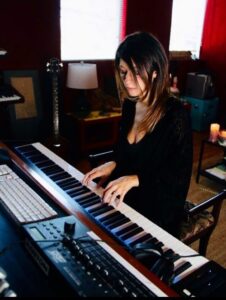
BTL: Do you generally write on a piano, or do you write on a computer system like the one I see behind you?
Weiss: That’s my rig, but whenever I start a score, I always start by sitting at the piano and kind of fleshing out an idea, or a guitar. I think it’s nice to go back to an instrument before you start getting into the box. And it’s dependent on what type of score you’re doing. I think if I’m doing a synth score or something electronic, then yes, I’ll likely gravitate towards my rig, or I have some cool synths over there, so I’ll start there. But for the most part, I like staying off of the computer at the beginning stages.
BTL: You mentioned you already had an edit of Cinderella when you were working on that. Do you generally want to have picture beforehand, or have you done some stuff where you just had a script and you came up with themes and melodies from that?
Weiss: I’ve done all versions of that, and I do find reading a script is beautiful, and it can be very inspiring, but at the end of the day, the picture is going to tell you everything you need to know. It’s also going to accept or reject what you write very quickly. I’ve learned as I’ve pursued this career, I’ve learned very quickly at this stage when something is working, or it’s not working. I find it most valuable to have a cut earlier rather than later. That tends to work for me.
BTL: I’ve spoken to Kay a few times before. I know she’s very funny as a person as well as a writer. When I listened to the score, I didn’t hear anything that sounded like “comedy cues.” There was nothing used to emphasize that aspect of the movie, so do Kay or you and Mychael just know you can’t do that since it just makes things over the top?
Weiss: Yeah, she doesn’t need that help. She’s funny on her own, so we didn’t need to help support that in any way, because the writing does that and the actors did that. That wasn’t really a part of our job, which is a really nice thing, because we call it Mickey Mouse-ing.
BTL: Who comes up with the titles for the cues? There was one called, “Wifey Fish Guts” which was kind of funny, though I’m not sure where it was in the movie.
Weiss: It’s a collaborative process, but mainly Mychael and I, and also my fabulous mixer Eva, she helps in that endeavor. It can be a variation of things — I believe that came from a piece of dialogue.
BTL: You mentioned your mixer, so even though you do have an engineering background, you don’t get involved in that side of things when you’re writing the score?
Weiss: It’s important to have knowledge and understand that good programming is a huge part of being a composer, I mean, now more than ever, because anytime you send a demo through and you’re having a review, you want to make sure that your mock-up is demonstrating, to the best of your ability, what an orchestra will sound like and that your arrangement sounds good. That’s a big part of what I do, and I think what all composers really do at this point.
Mixing a score is a very, very different endeavor. I definitely think it’s dependent upon the project, if it was something, perhaps a bit more intimate, where it’s just piano and cello and vocal, I might be more inclined to do something like that. But when it’s a full 50-piece orchestra and guitars and dulcimers and drum kits and electric. I mean, that’s not my bag. I hire the professionals for that.
BTL: That seems like a good transition into my next question, which is working with the Vienna Orchestra, who seems to literally be the busiest orchestras in the world during COVID. Every single composer seems to have been using the Vienna orchestras while L.A. was under lockdown.
Weiss: We started the process in September 2020 and — also, side note, what a joy to work on a film like this during a pandemic, I mean, truly — it was the opposite of how every human being must have been feeling at that point. It was a true joy to get to sit down at my rig every day and write this music for such a wonderful film. We went through the motions, we wrote the score, and then it was time to record, and we couldn’t do it in Los Angeles. We did some research, and Mychael and I felt that Vienna would be the best. We’ve worked with Prague before and Budapest, and they’re all incredible orchestras, but Vienna seems like the right choice for this film. We contacted Synchron, and we put an orchestra together and it was, I think, at least 50 pieces, 50 players. And, it was truly a wonderful experience. Kay got to be there on Zoom, and we did it remotely, of course. We went to a studio here in Los Angeles, and it was a nice long day of recording the entire score.
BTL: All in one day? Even though it’s only about a half-hour of music, it seems like a lot of work.
Weiss: It is, and given the time difference, you wake up at 4 am and downbeat is at 5 am, and then you’re done by 2 pm, which is very funny. It’s really off. It’s like Twilight Zone, it feels a bit kooky, but they were fantastic players, and the conductor Johann Vogel was amazing. We really felt like we hit a home run with that one. We got such a great group of players and our orchestrator Jeremy Levy, who’s here in Los Angeles, did such a fantastic job. It all really came together. We were very fortunate we seem to succeed.
BTL: Are you able to make changes on the fly like you normally would? Or is it a little tougher to get notes from L.A. to where they’re actually recording?
Weiss: No, we were really lucky, and technology’s pretty incredible. We were able to give notes to the conductor on the stage, and we proceeded as you would in any instance of recording an orchestra for a film. They were absolutely amazing, and it was much easier than I think either one of us had imagined it would be. They were just game, they were wonderful.
BTL: I feel like the Zoom thing is very much like being in the control room where you always have that separation and you’re not necessarily in the studio with the orchestra.
Weiss: Absolutely, and the conductor is there to play down a cue. “Any notes, guys?” That’s always the next question, right? “How do you guys feel? Any notes in there?” So that’s part of the rapport, that’s part of the dialogue always, so it was perfect.
BTL: And you mixed it back in L.A.? You were able to get into a studio to mix it?
Weiss: Yeah, we mixed back in L.A., so that was also a wonderful process, and we worked with a woman, Eva Reistad, and she’s a dear friend of mine. We did it here in Los Angeles, and she’s incredible. She also comes from the Remote Control camp, so she’s worked with Hans for a long time. She was just part of the mixing team for Dune. She’s one to watch. She’s really, really, really gifted. It was so great to do it here, because I could sit in the room with her and Mychael could sit in the room, and we could go through each queue and really fine tune it and make sure we’ve spent a lot of time addressing everything we needed to address.
BTL: The movie turned out amazing, and I’m constantly surprised by these movies made during the pandemic under very odd circumstances that still turned out great. I know it played in New York theaters, but I actually didn’t get to experience that. Were you able to see the movie in a theater?
Weiss: Mychael and I were very lucky. We got to watch it at Sony. This is a Sony film and Spring Aspers, the head of Sony is just the best and so we love her and she made sure that we got to see the final product in a theater, which was so just amazing. On a big screen, it blows you away. It’s just so vibrant and colorful, and the songs are great and the actors are so good. It is such a feel-good movie, and then we were lucky enough to have a premiere here in LA at the Greek Theatre. We all went, and that was really exciting to watch it on the big screen at the Greek.
BTL: Kay told me a little about the pandemic stuff they had to deal with, which involved the entire production being shut down and then starting back up a few months later. I don’t know how they were able to get that energy back up to where it was before the shutdown.
Weiss: Absolutely, but she’s just the coolest, and she’s so funny. You just want to be around her, so I think if there’s anyone that could lift spirits and encourage a cast and crew to have fun and “Let’s keep going,” she’s the one.
BTL: What are you doing next?
Weiss: I’m doing a film called 1Up, which is really, really fun. It’s about female gamers, and it’s a very synth-heavy score, which I’m really enjoying — something very different from what I’ve been doing over the past couple months. I’m also doing an Illumination short, so it’s animation for Universal, which is fun. And then, I have another Amazon movie I’m going to hop on in the next month.
Cinderella is now available to watch streaming on Amazon Prime Video. You can also read our interview with Director Kay Cannon.
All photos courtesy of Amazon Studios.

